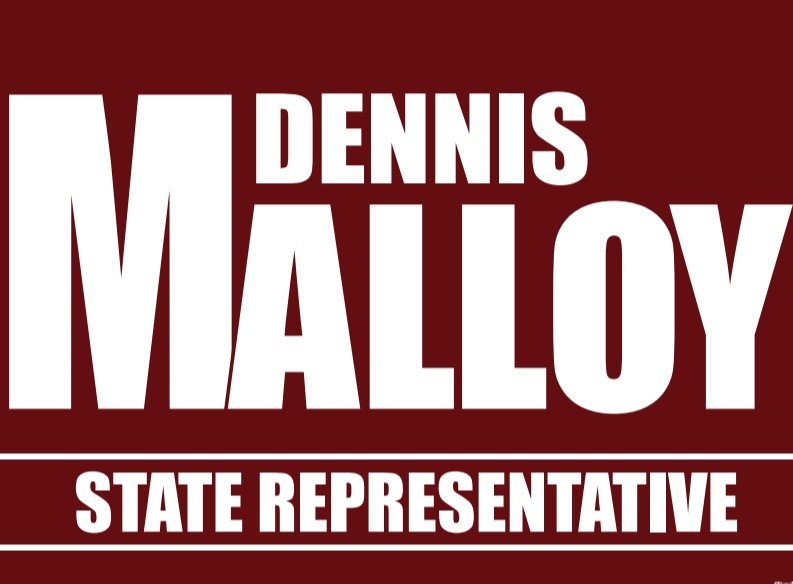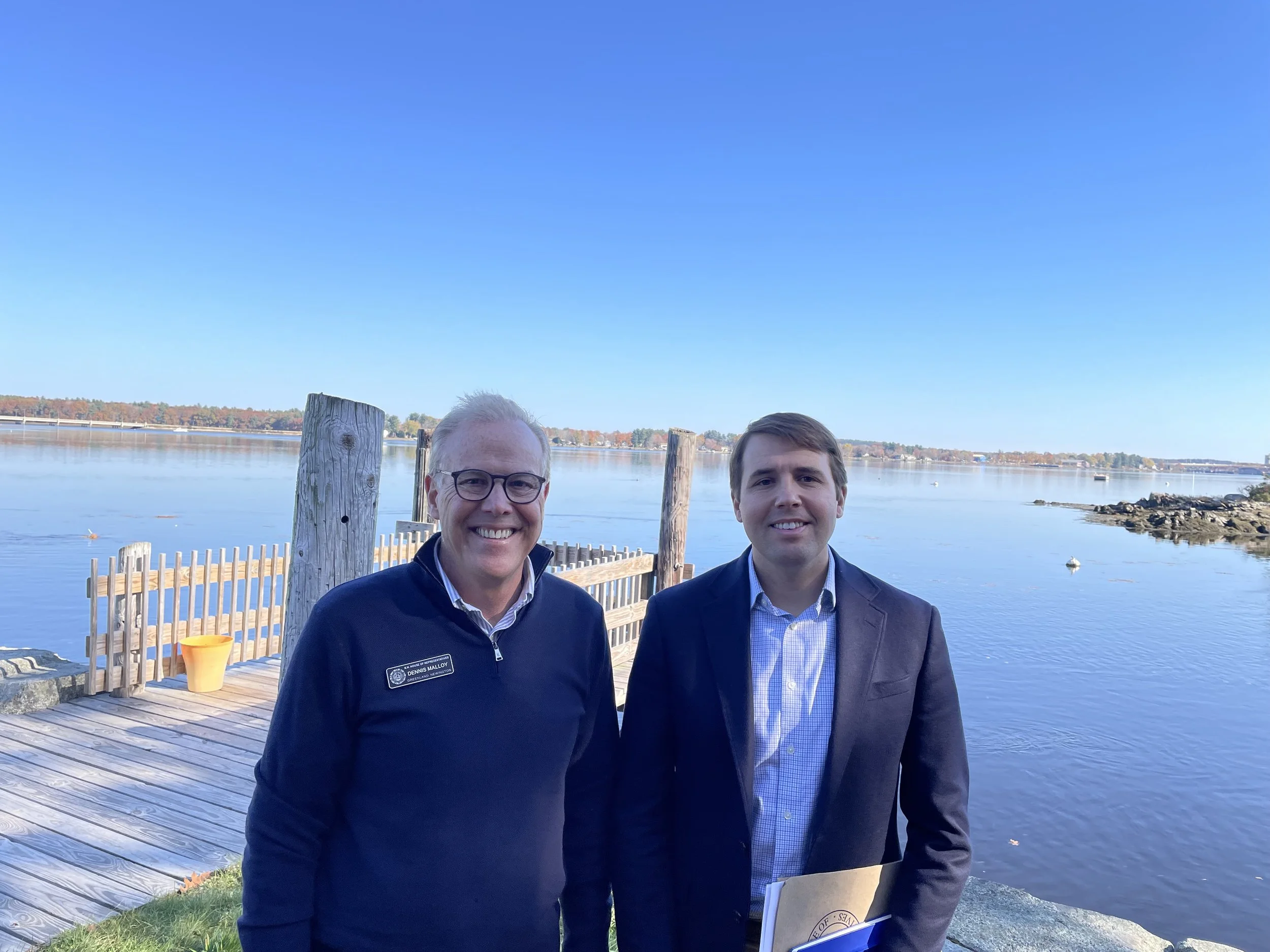$1 trillion infrastructure bill means new water pipeline for Seacoast communities
Greenland/Newington state representative Dennis Malloy and New Hampshire Congressman Chris Pappas in Newington, NH November 8, 2021 explaining how the Seacoast benefits from the new congressional infrastructure bill.
New water pipeline and PFAS pollution remediation for Seacoast communites…
U.S. Congressman Chris Pappas said the passage of the $1 trillion infrastructure bill is a “significant down payment” for addressing America's infrastructure deficiencies and directly affects the communities of Portsmouth, Dover, Durham, New Castle, Madbury and Newington.
“This bipartisan bill represents the largest investment in water infrastructure in our nation's history,” Pappas said. “It lays out funding over the next five years allowing us to plan and to think about how to utilize these resources in a way that can get projects beyond the planning stage to actually get shovels in the ground.”
Portsmouth will be constructing a new 24-inch, high density polyethylene pipe (HDPE) fresh water main under Little Bay in the winter of 2022 into 2023. Representative Pappas led a discussion about the details of the bill on the shore of Little Bay in Newington on Monday November 8, 2021.
Another major component of the infrastructure bill, said state Sen. Tom Sherman, D-Rye, is $10 billion for costs associated with PFAS pollution remediation and filtration for water systems. Sherman said the federal delegation’s “homework” is now to craft legislation to regulate the manufacturing of the 9,000 PFAS chemicals so the health risks of contamination are known and for manufacturers to be on the hook for communities that need to build filtration systems.
The existing pipes carry approximately 60% of the city’s water in its regional system, which includes Newington, Greenland, New Castle and portions of Madbury, Dover and Durham. The existing cast iron pipes are 60 years old, and were discovered in 2016 by divers to be exposed to salt water with corrosion pits greater than 50% of the pipe wall thickness in certain places.
Senator Sherman reminded the gathering that “we’re still making these chemicals … and they’re coming into our communities; (some) are actually harder to filter, and we have no clue about the health impacts. “New Hampshire has done a great job bringing the MCL (maximum containment level) down to among the lowest in the country, but the EPA still uses 70 (parts per trillion). So, I know that Congressman Pappas, Senator Shaheen and Senator Hassan are all working hard to get the EPA to not only bring the MCL down to what is now the scientific understanding of what's safe, but also to declare it a hazardous substance, and that will make it much easier for the states to actually hold the polluters accountable."

